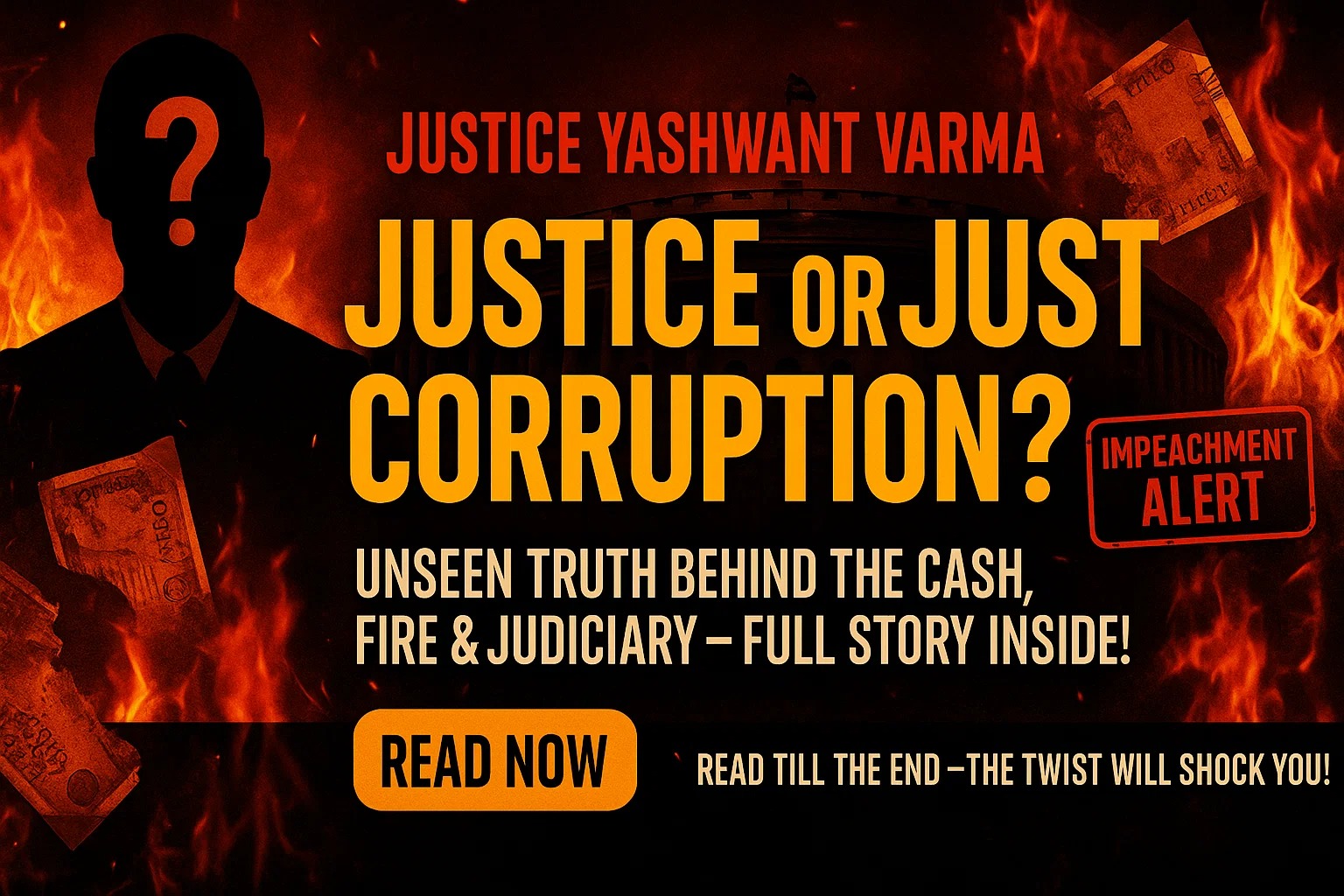The Incident: Discovery of Unaccounted Cash
Around 5 pm on March 14, 2025, a fire broke out at Justice Yashwant Varma’s official residence located in Delhi’s 30-Tughlak Crescent. During the firefighting operation, officials discovered massive stacks of charred currency notes in the house storeroom. The money stack, as per the inquiry report, was approximately 1.5 feet high and was placed all over the room. The storeroom was in the sole control of Justice Varma and his family, and hence the discovery came as such a surprise.
The Inquiry: Supreme Court’s Response
Chief Justice of India Sanjiv Khanna constituted a three-member committee to inquire into the matter in response to the incident. The committee report held that the allegations of misconduct against Justice Varma were serious enough to call for initiating impeachment. The report said that Justice Varma did not offer a reasonable explanation of the source of the cash, resorting to a flat denial and claiming a conspiracy against him. The committee discovered enough merit in the charges, finding the misconduct serious enough to warrant his ouster from office.
Bar Associations’ Reaction: Demand for Accountability
The Allahabad High Court Bar Association was vigorously opposed to the transfer of Justice Varma to the Allahabad High Court, terming the court as “not a trash can” for judges with serious accusations. The association requested thorough examination of all the judgments pronounced by Justice Varma while he was in office to uphold public trust in the judiciary. Also, the Bar Association demanded a full-scale criminal investigation by the Central Bureau of Investigation (CBI) and the Enforcement Directorate (ED), clarifying that corrupt judges must not be given special treatment over bureaucrats or politicians.
The Impeachment Process: Constitutional Provisions and Challenges
In accordance with the Indian Constitution, the impeachment of a judge of a High Court needs to go through both chambers of Parliament. The procedure involves a motion signed by a minimum of 100 Members of Parliament (MPs) in the Lok Sabha or 50 MPs in the Rajya Sabha. After the motion, an inquiry is held, and if the judge is proven guilty, the motion has to be approved in a two-thirds majority in both houses. This is highly impractical and has never been practiced effectively in the history of India, and thus it is a great obstacle in judicial accountability.
Calls for Reform: Enhancing Judicial Accountability
The case of Justice Varma has once again put the issue of reforms in the judicial system in order to make it more transparent and accountable on the national agenda. According to the critics, the existing system of judicial accountability is weak, where charges against judges go unsubstantiated because there is no ordered system of inquiry into misconduct. Increasingly, there is a consensus that an independent body is needed to monitor judicial behavior and address charges of corruption competently.
Conclusion: Upholding the Integrity of the Judiciary
The charges made against Justice Yashwant Varma and the impeachment process place strong emphasis on the absolute need of upholding integrity by the judiciary at all costs. As trial progresses, it serves as an example of how important it is to have a proper mechanism of dealing with judicial malpractice and restoring confidence in the justice system. Instituting substantive reforms for the purposes of promoting transparency and accountability is the most significant means of maintaining the rule of law and promoting equality before the law.
About the Author
Nitya Jain is a first year BBA.LLB law student at Symbiosis Law School,Pune. She is a certified legal researcher by Manupatra. She have a keen interest in Corporate law as well as International and IPR law. Being a first year she is open to learn from various internships is a hardworking student and writes various legal articles and research paper as and when required.

